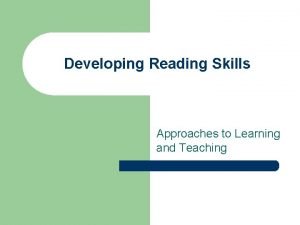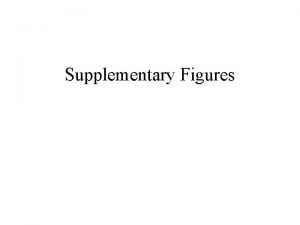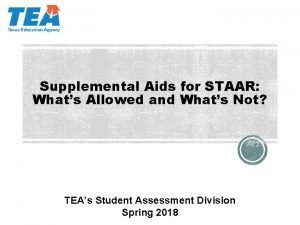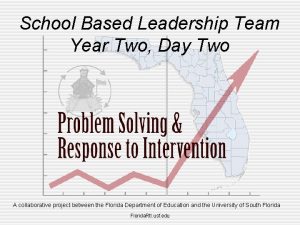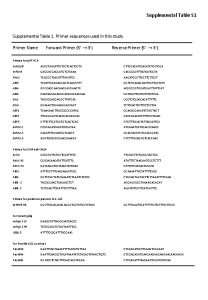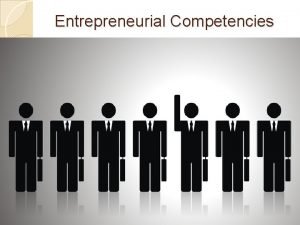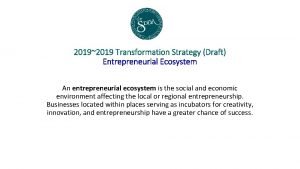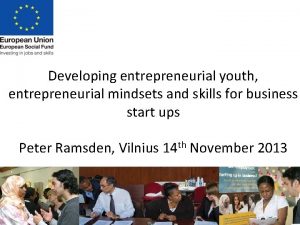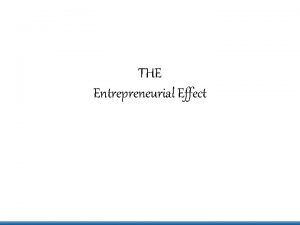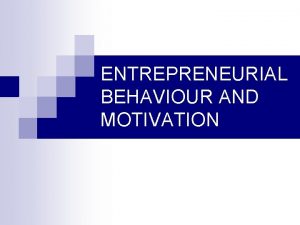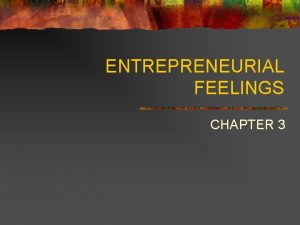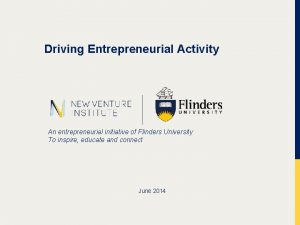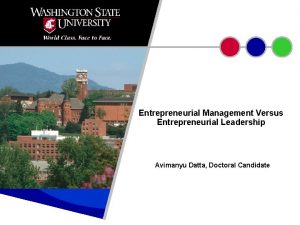Supplemental Reading Institutions How Entrepreneurial Are We Institutions



















- Slides: 19

Supplemental Reading Institutions

How Entrepreneurial Are We? • Institutions determine “where the money is (Willie Sutton)” in a society and thereby channel the entrepreneurial capacity of a people • Rent seeking vs. productive pursuits? Responses of undergraduates at UC Davis to the question, “How entrepreneurial are ____? ”

What Are Institutions? • Operating systems for societies and economies – Platform of rules, conventions, norms, and processes – Affect how we make decisions, how our decisions affect others, and how all these decisions and interactions work together to create markets and the broader society. – Often function in the background of our lives and go underappreciated—that is, until they get buggy and crash.

Examples of Institutions • Concrete: Banks (financial institutions), institutions of higher learning (UCD), mental institutions, the military • Not-so-concrete: Democratic institutions, codes of dress, modes of greeting people, symbolic communication systems such as spoken language. – Social conventions and institutions do not specify what “is done”, but rather what “ought to be done. ” – Zoologists: animal institutions in the wild

Corruption Is an Institution • Bends the rules of the game in favor of some people to the detriment of others – and to society as a whole. • Creates serious obstacles to economic development – Diverts the energy of clever people into corrupt instead of productive pursuits – Turns laws and law enforcement into opportunities for personal gain instead of broader social benefit.

Point: Institutions Matter Big Time • Inclusive Institutions – Political systems that are pluralistic, protect individual rights, and create the conditions that reward innovation and entrepreneurship, including secure private property and competitive markets • Extractive Institutions: – Concentrated political power and economic institutions that reinforce and often enrich the powerful few. • Like mining: Gold mining extracts but does not create gold Daron Acemoglu (MIT) and James Robinson (Harvard), Why Nations Fail (2012)

Why Nations Fail Acemoglu & Robinson (2012) • Differences in economic and political institutions are the dominant explanation for why some countries are rich and others poor • Institutions can be a potent economic force because of the positive or negative dynamics they trigger • Elites may not want things to improve, since genuine improvements may deteriorate their power.

Counterpoint: Institutions Aren’t Everything (Jeffrey Sachs) • Authoritarian elites aren’t necessarily hostile to economic progress • The diffusion of technology from other countries sometimes matters more than innovation • Even if we could magically transform institutions, unfavorable geography and other factors may continue to constrain growth and development • (If Sachs isn’t right about this, do millennium villages make sense? )

World Bank president calls corruption 'Public Enemy No. 1' WASHINGTON Thu Dec 19, 2013 1: 49 pm EST

Institutions Matter, But How Much? • Hard because of the reflection problem (Ch. 11 and James Bond) – Institutions shape economic development – Economic development enables countries to invest in stronger institutions (like better law enforcement). – It’s a chicken-and-egg problem.

The Reflection Problem • The treatment (“good” institutions) and the outcome you want to measure (development) move together – Institutions shape economic development – Economic development enables countries to invest in stronger institutions (like better law enforcement). • Like a Hall of Mirrors: How can you separate the bad guy (the treatment) from his reflections (the outcome)? – Some pistachio nuts could help… – They are an “instrument”

An Instrument for Institutions: Malaria? • If Europeans could live in a place without a constant threat of tropical diseases or other hazards, they tended to import more inclusive institutions • If mortality risks kept Europeans from settling en masse in a location, they opted for more extractive institutions • “Settler mortality risk” as instrument for extractive institutions? Daron Acemoglu (MIT) and James Robinson (Harvard), Why Nations Fail (2012)

So Where Do Institutions Come From? • William Easterly: Top-down vs. bottom-up • The top down view: institutions are created by leaders and legislators who govern and establish laws. • The bottom up view: institutions emerge and constantly evolve – …based on the social norms, traditions, values & beliefs of individuals as they interact and exchange with each other in a society – laws are codified and accepted after (because) they seem reasonable & useful to people

Why Does It Matter? • Top down: Leaders and legislators can determine a society’s institutional path – Including revolutionary do-overs – External pressure for change? • Bottom up: Institutions only change gradually, as individuals change their values or beliefs. – Astute leaders and legislators formalize these institutions into laws and regulations – Institutions are “evolutionary rather than revolutionary. ”

What It Means for Us • Top down view: Experts are needed to help craft and refine institutions • Bottom up view: Little room for experts to engineer institutions to solve social or economic problems – …and woe to the leader who tries to change institutions, if people aren’t ready to change!

A Middle Road • Institutions govern individual behavior and social interaction in profound ways – and they exist for specific reasons • Still may be room to impose institutions from the top down in the form of laws and regulations – …but must appreciate the richness & complexity of preexisting norms, values, beliefs • Societies evolve different institutions even in the long run – Wit: China’s unique mix of political and economic institutions

水滴石穿 — Shuĭ Dī Shí Chuān (Water Drops Pierce Stone) • But development cannot wait!

"Without effective institutions, poor people and poor countries are excluded from the benefits of markets. " World Bank Chief Economist and Senior Vice President Nicholas Stern

Boxes • How Market Institutions Make It Tough to Do Business in Sub-Saharan Africa • Do Land Rights Make People More Productive?
 Mikael ferm
Mikael ferm Pre reading while reading and post reading activities
Pre reading while reading and post reading activities Iowa state vet school supplemental application
Iowa state vet school supplemental application Ubc vancouver nursing
Ubc vancouver nursing Ssi vs ssdi
Ssi vs ssdi Science staar supplemental aids
Science staar supplemental aids Supplemental figures
Supplemental figures Mcas accommodations
Mcas accommodations Supplemental instruction
Supplemental instruction Supplementary figures
Supplementary figures Menu rationalization
Menu rationalization Grammar and mechanics rules for staar 2021
Grammar and mechanics rules for staar 2021 Supplemental instruction
Supplemental instruction Supplemental security income (ssi)
Supplemental security income (ssi) Supplemental table
Supplemental table What is supplemental security income
What is supplemental security income Supplemental table
Supplemental table Utsa supplemental instruction
Utsa supplemental instruction Math supplemental aids
Math supplemental aids Supplemental instruction
Supplemental instruction

